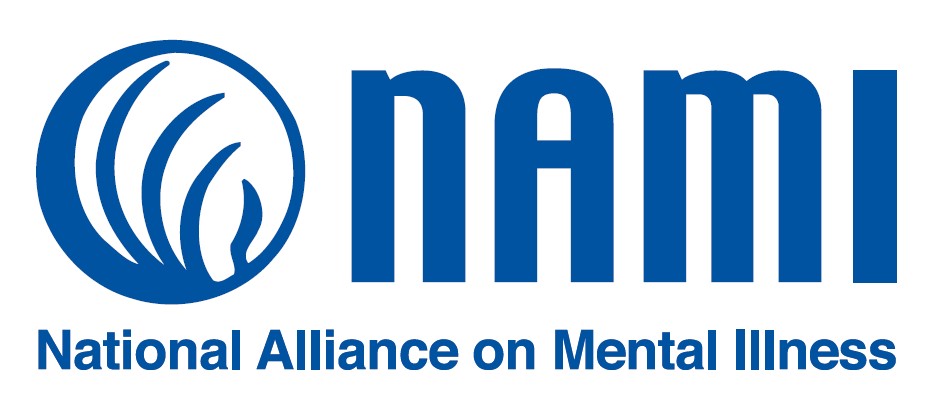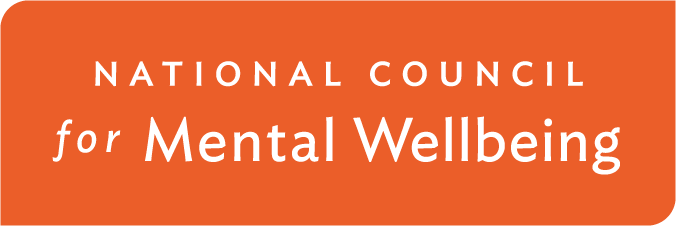
About this Whitepaper
NAMI is proud to be part of highlighting this whitepaper, which explores the potential societal and economic impact of scaling Coordinated Specialty Care (CSC) for first-episode psychosis (FEP). Expanding access to CSC programs for individuals in need could not only improve lives but also generate an economic return. The economic impact of CSC could result in potential cost savings across healthcare, employment, housing, criminal justice, and caregiving. In this paper, readers will find insights from a national model on the economic implications of reaching 90% access and become part of a conversation on what it might take to get there.
The whitepaper and national model are the result of collaboration among several partner organizations: National Alliance on Mental Illness (NAMI), National Association of State Mental Health Program Directors (NASMHPD), National Council for Mental Wellbeing, and McKinsey Health Institute.
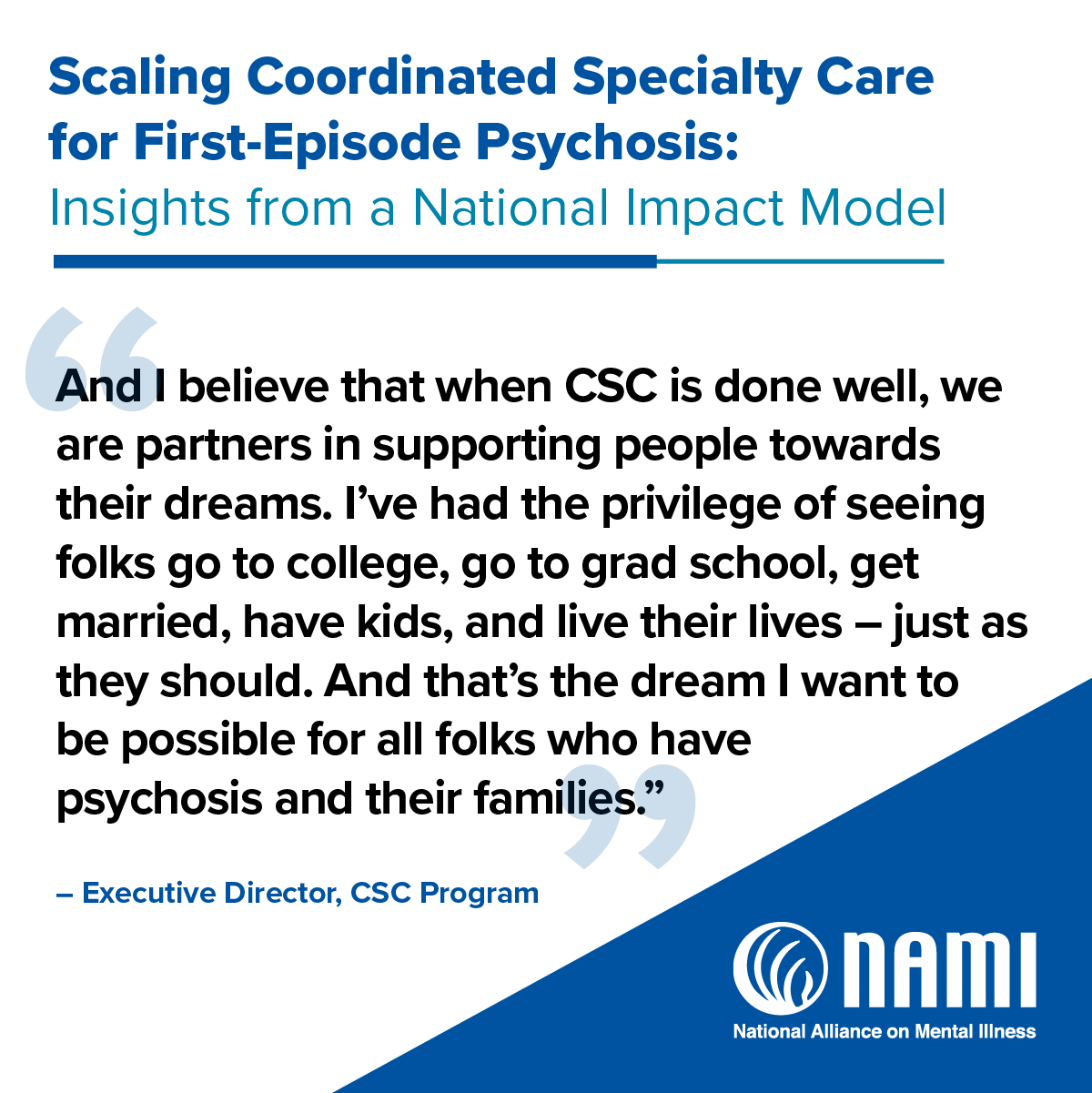
![Scaling Coordinated Specialty Care for First-Episode Psychosis: Insights from a National Impact Model | 'No one brings you a casserole when your loved one gets diagnosed with a serious mental illness, the way they do when someone gets diagnosed with cancer. The family advocate that helped me while my brother was at [CSC program] told me this, and it has since stayed with me because it's so true. On the outside looking in - people don't really understand what's going on with you and your loved one.' - Sister, Caregiver, Family Peer Support Specialist](/wp-content/uploads/2024/11/Quote-Sibling-1.png)
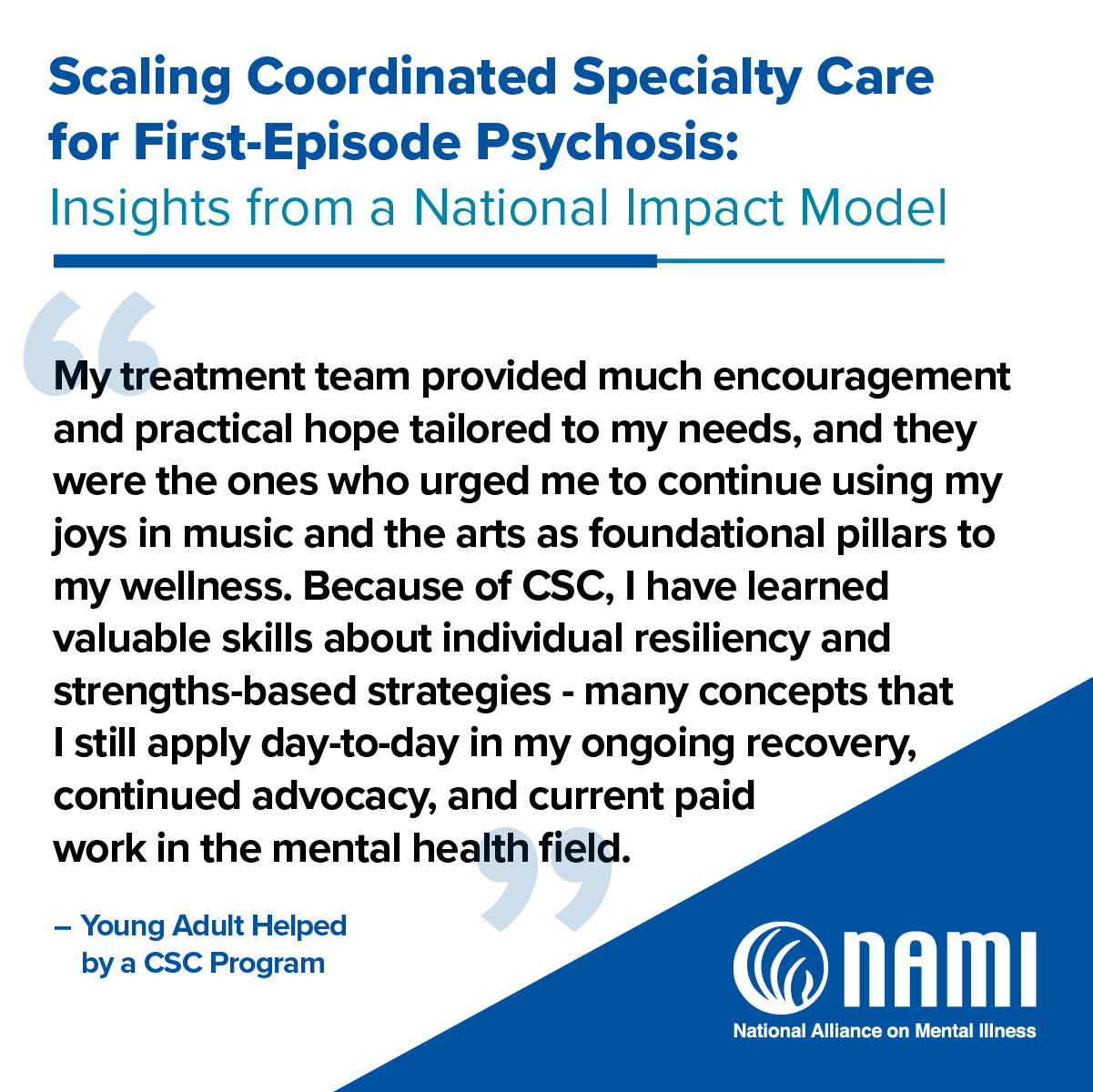
Key Notes From the Whitepaper
Coordinated Specialty Care: CSC is the standard of care for early psychosis in the U.S. according to the APA, NIMH, and SAMHSA. It is an evidence-based, recovery-oriented approach to treatment and is shown to improve clinical, social, and functional outcomes for people experiencing early psychosis.
Positive Impacts: Implementing CSC for individuals experiencing psychosis has been show to: improve mental and physical health, leading to a reduction in inpatient days and emergency department visits; reduce the likelihood of being unemployed; improve education rates; reduce the need for homelessness services among individuals experiencing first-episode psychosis; and reduce the risk of committing a first crime.
Improved Outcomes and Economic Impact: Increased availability of CSC programs has potential to improve lives and livelihoods of individuals experiencing first-episode psychosis. Over 10 years, addressing 90% of the need for CSC services could generate up to $115-$137 billion in cumulative savings compared to the current system and can improve the lives of 600,000-800,000 individuals, as well as their caregivers and families. These savings range across costs associated with healthcare, employment, housing, criminal justice, and caregiving.
Recommended Next Steps: In order to scale CSC implementation and achieve the impact outlined in this whitepaper, sustainable funding for CSC must be secured; workforce shortages must be addressed; infrastructure and accountability for CSC programs must be established; and awareness, screening, and outreach for individuals with early psychosis must be enhanced.
Learn more about these key takeaways by downloading the whitepaper today.
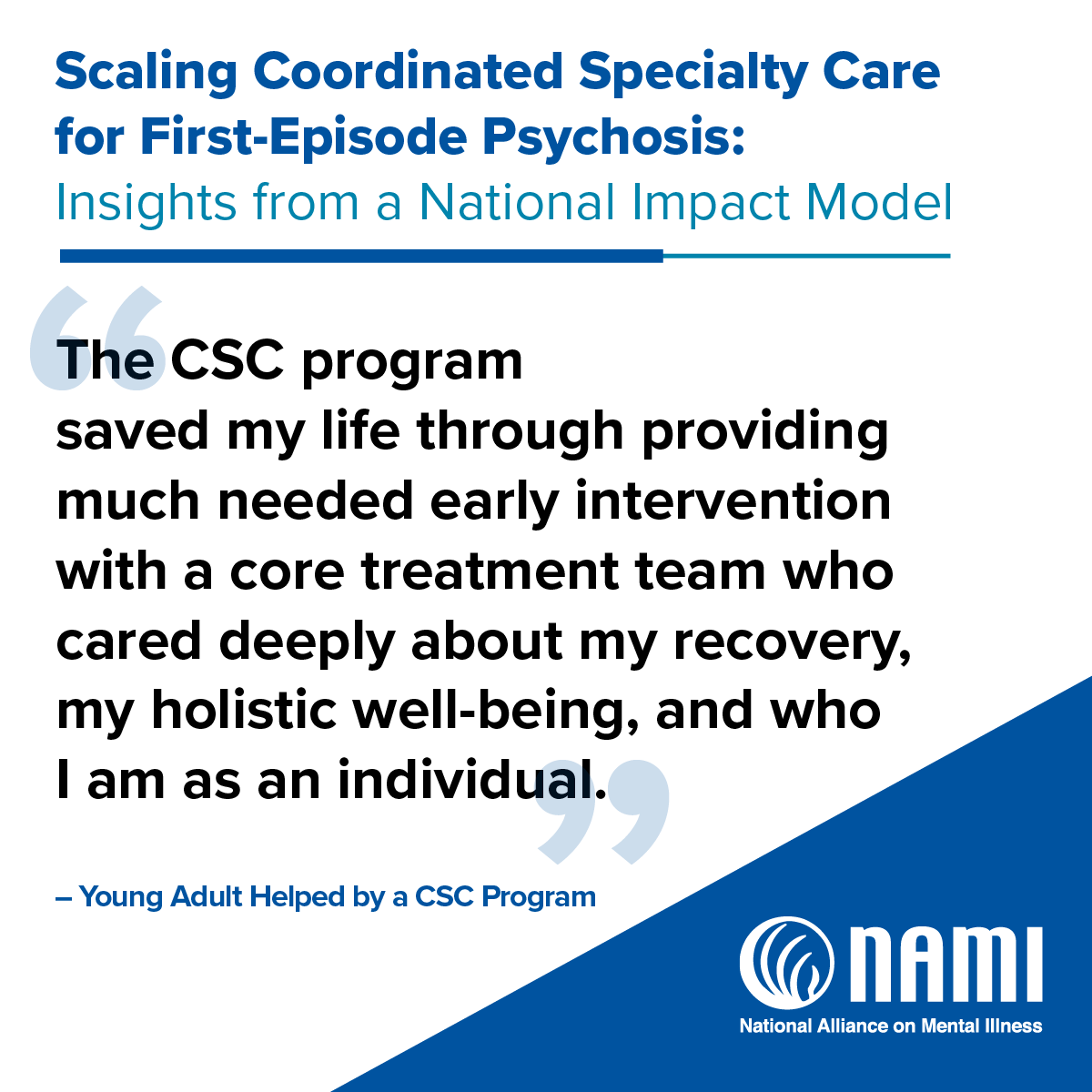
![Scaling Coordinated Specialty Care for First-Episode Psychosis: Insights from a National Impact Model | 'No one brings you a casserole when your loved one gets diagnosed with a serious mental illness, the way they do when someone gets diagnosed with cancer. The family advocate that helped me while my brother was at [CSC program] told me this, and it has since stayed with me because it's so true. On the outside looking in - people don't really understand what's going on with you and your loved one.' - Sister, Caregiver, Family Peer Support Specialist](/wp-content/uploads/2024/11/Quote-Executive-Director-2.png)
Acknowledgements
The following individuals contributed to the national impact model and whitepaper: Steve Adelsheim, Jessica Banthin, Iruma Bello, Scott Blackburn, Erica Coe, Kevin Collins, Robert Cotes, Carolyn Dewa, Danielle DiStefano, Lisa Dixon, Ken Duckworth, Kana Enomoto, Toby Ewing, Richard Frank, Dan Gillison, Darcy Gruttadaro, Robert Heinssen, Brian Hepburn, Emory Holzer, Chuck Ingoglia, Connor Larsen, Darshini Mahadevia, Patrick McGorry, Sharon Mei, Kate Midden, Keris Myrick, Elizabeth Newman, Tara Niendam, Oladunni Oluwoye, Debra Pinals, Jessica Pollard, Shruthi Rajashekara, Robert Rosenheck, Colleen Rosso, Tamara Sale, David Shern, Barb Solish, Greeshma Somashekar, Vinod Srihari, Brandon Staglin, Pooja Tatwawadi, Matt Thompson, Isi Umunna, Ken Zimmerman
